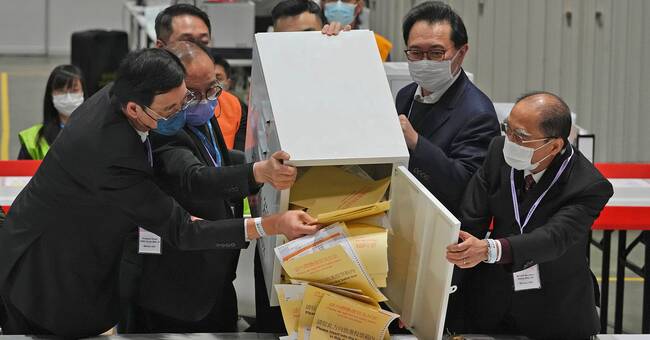Sunday's election was the first to be held in Hong Kong since the new election system was introduced, a system that will ensure that only "patriots" and people loyal to Beijing are elected to the city's Legco Legislature.
Only 20 of the 90 members are elected by the public.
The largest proportion of members - 40 in number - is appointed by a stable Beijing Faithful Committee.
The remaining 30 are also appointed by a committee, but in that group are representatives of industry and various special interests.
Polling stations closed at half past three (Swedish time) on Sunday afternoon.
Advocates of democracy imprisoned
A few hours later, the authorities reported that turnout had been the lowest in three decades.
Only 30 percent of Hong Kong's electorate voted in Sunday's election - in terms of numbers, 1,350,680 out of 4,472,863 registered voters had voted.
Hong Kong's largest democratic opposition parties have not even considered it worthwhile to try to stand.
The main proponents of democracy in the city have either been imprisoned, moved abroad or stopped from running.
About 10,000 police officers have been ordered out into the streets.
When the city's supreme leader Beijing loyalist Carrie Lam voted, three protesters chanted:
- I want real universal suffrage!
But no major unrest was reported during the day.
The Hong Kong government has joined forces to raise public enthusiasm for the election.
With front-page advertisements in the newspapers and information leaflets and text messages to every household, an attempt has been made to persuade the people of Hong Kong to vote.
The government also attracted with free public transport on election day.

